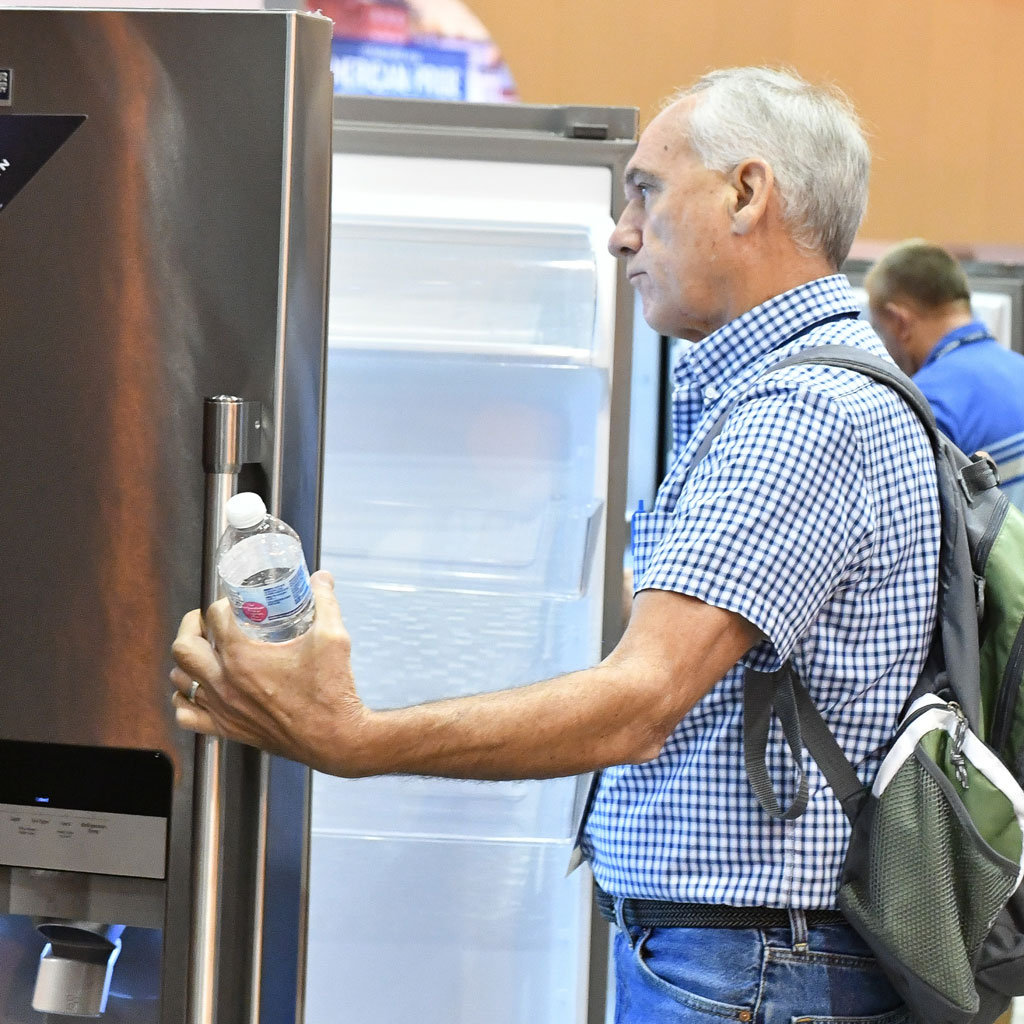By all accounts, the appliance industry has been less than robust so far this year. Although we came into 2019 expecting a slight decline in volume, those expectations actually turned out to be optimistic. As we made the turn out of Q1, the industry was down 7% in core unit shipments. We have seen it rebound slightly since, but as of this writing, the industry is still behind expectations – down almost 4%.
The great news for Nationwide Marketing Group is that we are far exceeding the industry in both dollars and units. Year to date, our unit volume is up around 9%, a substantial delta from the trade. Additionally, we have seen a significant increase in our average selling price (ASP). Year over year, our ASP has increased by 15.2%. This is almost three times the industry increase of 5.3%. Nationwide and our members continue to outperform the industry.
To put the industry unit numbers into perspective, it is important to note that, although the industry is down, we are still shipping more appliances than we did five or 10 years ago. As we level out on the industry’s most recent replacement cycle, this new baseline is significantly higher than even the industry’s largest shipment.
The industry’s upward momentum in pricing can be attributed to price increases brought on, primarily, by tariff escalation over the past year. While this certainly has impacted Nationwide members, the major driver for our ASP increases continues to be a strong shift to premium and luxury sales. In fact, Nationwide members outpace the industry in premium appliance sales year after year.
So, as an industry, we are shipping more units than we were 10 years ago and, as an association, Nationwide is selling a higher, more premium mix. On paper this seems like the perfect cocktail. Unfortunately, this is not necessarily the case.
Challenges Ahead
Certainly, these are great indicators, but there are challenges in our industry. Margins continue to erode, as the price a customer will pay has not kept pace with the manufacturer’s price increases. Competition has only gotten tougher. Even though Sears is much tamer than it has been in years, the DIY channel continues to promote itself aggressively.
In addition, while our traditional rivals have remained tough, we now also have competition from our vendor community. During the last year or so, several suppliers have entered the direct–to–consumer market by launching transactional web sites. Most recently, Whirlpool and LG have thrown their hats into the ring. We have not seen a huge impact to sales from this shift, but we need to be realistic. These sites will become a focus for suppliers in the coming years.
So, how do we differentiate ourselves with customers and continue to compete in this new digital world? Our challenge as merchants will be to continue to find models and packages that can perform in the market with margin benefits and limited exposure.
Taking Advantage of New Opportunities
We are focused on narrowing the assortment and concentrating on key models to drive profitability, while at the same time simplifying execution. With varying assortments and offerings online compared to the competition (and I mean all competition, vendors and retailers alike) and a world–class experience in store, the independent retailers of Nationwide Marketing Group can thrive in today’s environment.
This won’t come easily. With more aggressive competition, foot traffic will continue to be a contest. However, our combined focus on digital marketing and best-in-class websites will drive the foot traffic to your stores. This is something that we have seen many of our members embrace, and it has helped many dealers flourish.
So now that we know how to increase traffic, our next challenge is to focus on closing every customer that walks through our doors. We must be the best–in–market in several different areas. We must have the most updated stores and displays in the industry. We must continue to train our staff, including delivery and technicians, to be above the rest. Most of us have heard these goals before. What is different is that our independent retailers must become the “go to” place for technology.
Challenge yourselves, both at PrimeTime and over the coming months, to push the envelope. Our connected home initiative is bigger than ever and is the future of the appliance space. If you want to be “different,” if you want to stand out in the market, you must stake your claim. Independent retail is the only qualified place where a consumer can learn about and have a complete experience in both premium appliances and the connected home. If you’re not world–class in these areas, you will miss out on the opportunity.




